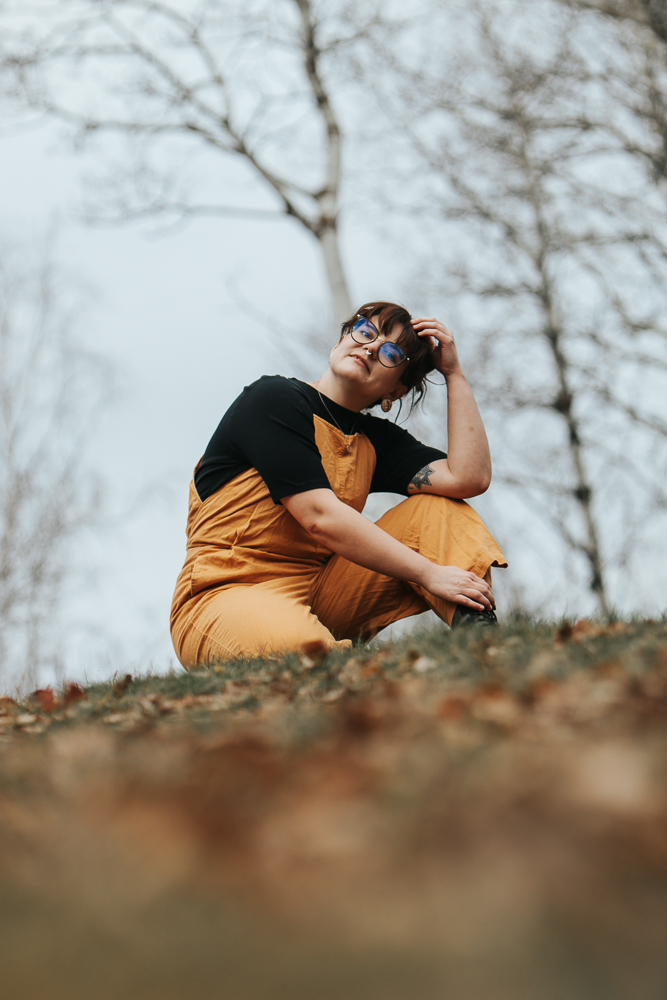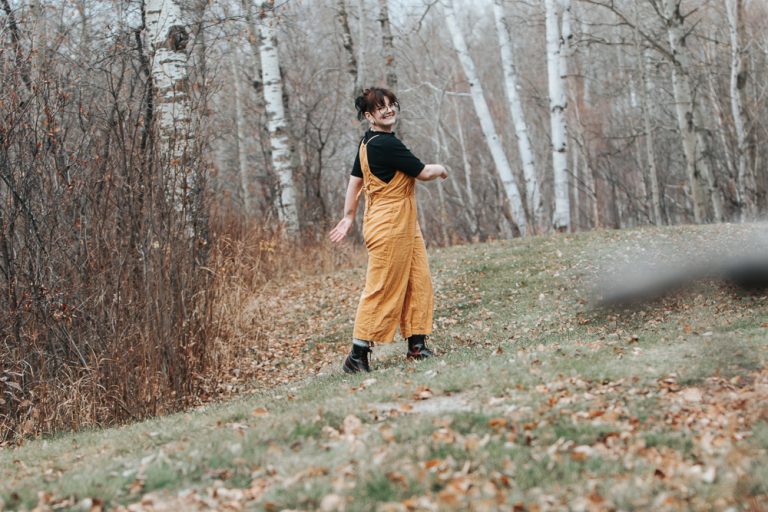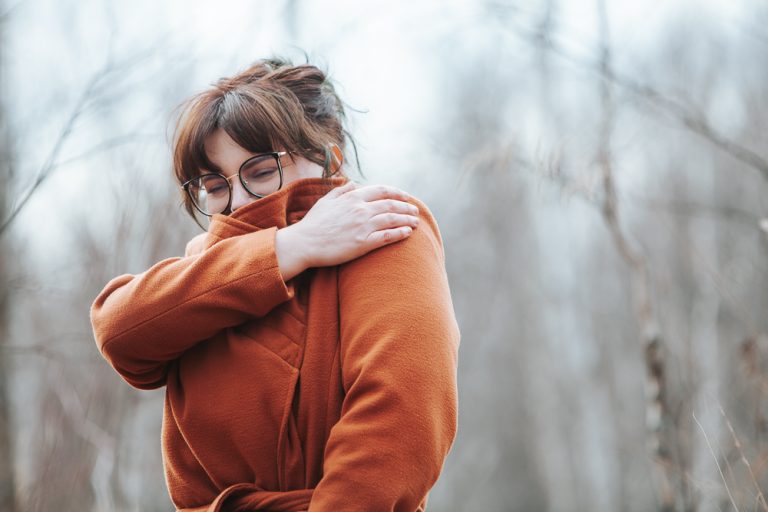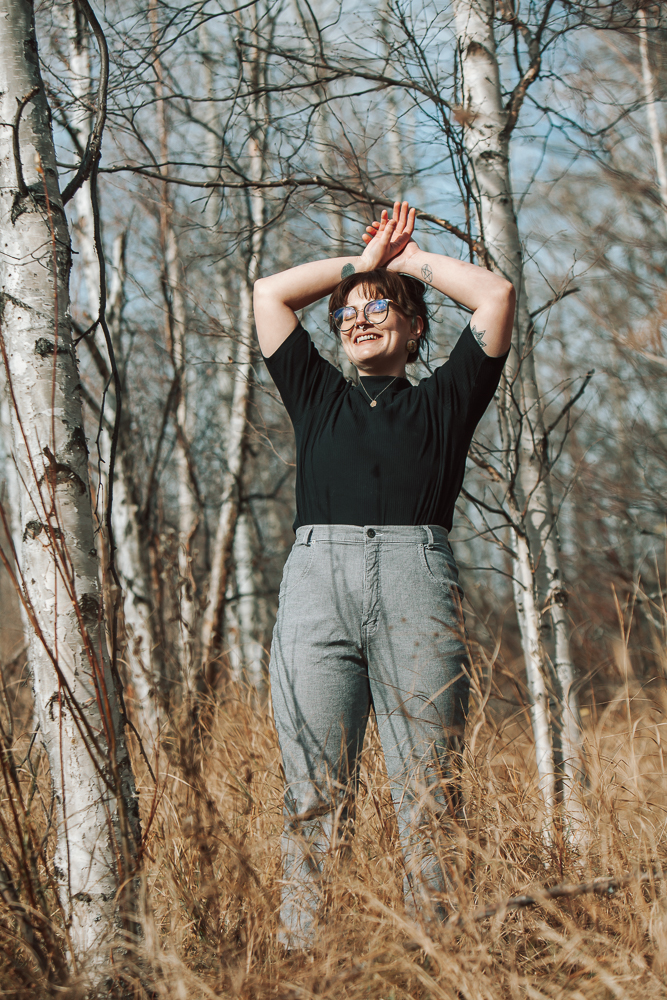I struggle with describing this technique to clients, even when they are open to it, have booked a session, and are sitting in the chair across from me. A standard opening line for me is “So what do you know about Reiki?”
Typical responses include “not much” or “I have a friend who practiced on me one time, and it was nice”. If it is their first time experiencing Reiki, my spiel is small, short, and to the point.
“Reiki is a Japanese relaxation energy technique, and most people experience a deeper level of relaxation, sometimes describing it as like being in a meditative state. Beyond that, it’s a completely subjective experience. Blended with massage therapy, it can aid in repair and rest for the mind and body.”
And if I’m being honest, I say “most people” but I have never had a session where this did not happen. From people visibly looking more languid, slower movements, or just good ol’ falling asleep on the table, it’s clear that this is the most obvious response to Reiki. Alas, my inner skeptic awaits the day this doesn’t occur, and then I will be vindicated in always saying “most” and not “all”.
Truly, though, the uses are so wide and vast, so cosmic and practical, that I often find myself tongue-tied into the standard response of “Japanese relaxation technique”. Which is both true and not enough.
Deep dive into the history, and you will find roots of traditional energy medicine from across the globe mirroring the practice of Reiki in acupuncture, yoga, ayurvedic medicine, traditional chinese medicine, and indigenous medicine. And dive even further into the studies of neuroscience and polyvagal theory, and you will see the energy system of many traditional medicines looking suspiciously similar to the nervous system as we know it today. Because what is the electrical impulse of our body (nervous system) but an energy system? Literally!
Whether you come at it from a spiritual or scientific perspective, energy exists and influences our entire world, inside and out. Whether you’re talking about the way the moon orbits the earth, the spring in your step, or the vibe of a room—it’s all energy, babbyyy.
This theory is based on my own explorations, but it’s hard to unsee.
I think about this a lot, and it’s one of the many reasons I have turned to both spiritualism and science in my ever continuing education on the human body, mind, and spirit. From occult practices of tarot, astrology, and kabbalism, to traditional medicines of yoga, herbalism, and Reiki, to the science of physiology, polyvagal theory, and trauma recovery, it all connects.
So what the heck does this have to do with Reiki?
Everything, sweet friend.
Where It All Began
Let’s jump back in time to December 2019, when I took my level one Reiki class expecting to find it full of woo-woo-nonsense. I was open to the possibility of learning something interesting about the way people believe energy work to be helpful (placebo effect, anyone?), but my expectations were woefully low.
My only exposure to Reiki at that point was from a woman in my teenage years who unnerved me and left me with the belief that people who practiced Reiki were cray-cray crunchy hippies.
The only reason I was taking the class at all was because I was doing a massage practicum in a clinic where all the other therapists knew how to do it, and truthfully, I wanted to be like them (pressure to conform—weeeeee!).
Out of respect to my mentor and (admittedly) a dash of personal curiosity, I signed up for my level one class, believing at the very least it would be an interesting modality to add to my resume. However, I took it from a woman who I felt instinctively would teach from a place of integrity, and I am grateful a million times over that I did.
Most Reiki trainings are one weekend of learning level one and two together. My teacher does the levels separately, and requires that you wait at least three months between each level. After spending an entire weekend learning level one, I appreciate this approach in its slowness, authenticity, and integration. There was time to learn about the history, lineage, and practice it in the group setting, but even my teacher admitted that a weekend was hardly long enough to truly understand the impact Reiki could have in your life.
We were being taught the skill, but it was up to us to choose whether we wanted to use it. As I understand it now, there is really no use in learning something if you don’t know how to practice and apply it to your life.
Sidebar
Not applying what you learn is a criticism on the wellness industry as a whole, where there is pressure to have more credentials, courses, and certifications on your wall than one person would know what to do with. It’s like having a stack of self-help books on your nightstand, reading the same advice over and over again in different words, only to never apply it to your real life and expecting things to change simply by osmosis of information.
I have absolutely been guilty of this pattern, and am beginning to understand it not as a fault of my desire to transform my life, but as the very real and lived experience of being in a westernized world that capitalizes mind over body. The idea that you can think, read, or academia your way out of suffering is a very western way of being.
But I digress.
Before I took level one, I had no idea that Reiki was even Japanese! And I am still floored to this day how little practitioners of Reiki talk about this. I say it as often as I can because it’s important, and because it’s lineage is the only concrete, evidentiary claim I can say about it.
Reiki is weird. And wonderful. And Japanese.
Over the last three years, I continued my training with level two and three with the same teacher, and I have hopes to become a Master Teacher myself one day. But I have learned that the journey of mastering anything is lifelong, and there are soooo many lessons to be had along the way.
Reiki In Practice
Fast forward to me beginning practicing Reiki on clients, where I began noticing the difference between people receiving massage and people receiving massage and Reiki. The people who also received Reiki were far more calm, relaxed, and in follow-up, seemed to be experiencing longer gains of the massage in general (ie. feeling more tension relief for 2-3 days longer than what a regular massage would provide).
Being the skeptical nerd that I am, I started to wonder why. What was happening that I couldn’t see? Why were these people feeling deeper relaxation longer and what were the short-term vs long-term effects of Reiki? What was possible with Reiki that wasn’t happening with only the physical touch of manual therapy? And how could I learn more about the impact of Reiki on the mental and physical body?
Most of the information I could glean via the internet (and any technical books I could get my hands on about Reiki, which is sadly little) spoke mainly in terms of spiritual healing, or made grand claims of magical healing with little research to support them.
Fewer sources provided any insights into the physiological relief energy work could provide, and most professionals in the fields of mainstream medicine discard, distrust, or dismiss the possibility of energy work having any real application beyond the placebo effect. The main point of contention is the inability to apply the scientific method to energy work in any real context of body healing.
Even massage therapy, though now considered standard practice for supporting people with chronic pain, injury, and stress relief, has very little evidenced-based research to support some of it’s claims to wellness, because the experience of hands-on manual therapy is so subjective.
We can dissect the human body into separate tissues, organs, and systems to study it, but a living, breathing, moving human body (and the mind that exists within it) is far more complex and nuanced than just knowing the physiology. We know that massage therapy is helpful, but we don’t really understand why beyond the fact that humans are social, community-based organisms that require physical touch for wellbeing.
We don’t understand it in the same way we can deconstruct physics, chemistry, or biology. We know some parts of it, but not all of it, as there are limitations to the way we can study it. Add in the lack of funding for this kind of research, and it’s a perfect storm for misinformation about massage therapy, energy work, and bodywork in general. To my ongoing dismay, there are wildly inaccurate, vague, and just plain stupid claims rampaging galore across our collective consciousness.
To my ongoing dismay, there are wildly inaccurate, vague, and just plain stupid claims rampaging galore across our collective consciousness.
Don’t even get me started on “toxins”. *barf*
The massage therapy techniques I was taught in college are based on the teachings of Western practitioners (think Swedish and deep tissue and neuromuscular techniques), even though its earliest roots have been discovered in India, Egypt, and China from up to 5000 years ago. WILD. Majority of what I learned over the two years of my diploma was about how the skeletal system works, relevant pathology, assessment for movement, and how to increase range of motion, reduce pain, and communicate in medical/anatomical terminology. The biggest chunk of it was learning the names and functions of muscles and connective tissues, so I could proficiently address areas with precision and professionalism.
But as I started to practice on people with the same aches, pains, and postural patterns, with varying degrees of success in application depending on the person, I began to see the holes in my education.
I began to see the holes in my education.
Massage is similar to Reiki in practice where there is a felt sense of something changing, being supported, or relaxed in the body and mind, but how and why and what is actually happening when I place my hands on a person and press here or stretch there, varies so widely depending on so many things outside of the physical ailments that are presenting themselves, it makes my pretty little head spin.
Enter: The Nervous System.
Once I started my own research about the mind/body connection, and increased my general knowledge about the impact that our nervous system states have on our overall beingness/wellness/ability to show up in the world, I started to connect the dots.
What I investigated in practice with people seems simple, but it has profound implications. Often what a massage does is help shift that person’s nervous state from sympathetic (fight/flight/fawn/freeze) into parasympathetic (rest/digest/repair). Whether the treatment is relaxation or therapeutic in approach, it is necessary for an effective session for that body to be in a relaxed state for the deeper work to, well…work.
These are the two nervous system states that I learned about first, but there is more to your nervous system than that. For the sake of this post, I’ll keep it simple.
You cannot access deeper tissues without relaxing the superficial ones. You cannot relax the superficial tissues without working with the nervous system. You cannot work with the nervous system without acknowledging the impact of individual and collective experiences on a person’s life aka the person living inside the body.
You cannot work with the nervous system without acknowledging the impact of individual and collective experiences on a person’s life aka the person living inside the body.
Everything that person is lives inside their body and their nervous system—thoughts, feelings, emotions, desires, hopes, dreams, suffering, pain, beliefs, values, attitudes, and perceptions. And, generally speaking, when someone comes in for a treatment, they are looking to shift one or more of those things in their body, whether temporarily or permanently. It is in this space—the desire to change—that Reiki has the most impact.
It is in this space—the desire to change—that Reiki has the most impact.
When shifting anything in the body, the body needs to feel safe/comfortable enough to do so. This can be accomplished with many subtle cues, from the design of the space, attunement to the practitioner, tone of voice, language used, perceived pressure, and deep listening/communication skills. This feeling of calm, comfort, and safety can also be aided by energy work.
It is my belief that Reiki has the ability to shift the body from the sympathetic nervous state to the parasympathetic nervous state; it engages with our nervous system in ways that other modalities unreliably hit and miss.
When we are in this resting (parasympathetic) state, we have power and capacity to imagine, dream, and heal. The body has an innate ability to heal itself, but we as humans possess systems within our bodies literally designed with a drive to heal in community.
We are not meant to do it alone.
When we are in this resting state, we have power and capacity to imagine, dream, and heal.
Our nervous systems actually have this really cool ability to attune to each other, and one regulated, calm, and centered nervous system has the power to regulate, calm, and center another! The opposite can also be true, which is why if you’ve ever stepped into a room of highly anxious people, you can feel that and become anxious yourself (I find busy shopping centers to be the worst for this). This is why going to something like a meditation retreat is like riding a high of peace and tranquility for a weekend, and then you come home, and suddenly you’re back in your own patterns and nervous system without the power of the communal regulation to keep you there.
This is also why having a one-on-one session with a Reiki practitioner or massage therapist can be a deeply relaxing experience, but a few days later, you’re still doing the things that got you there in the first place, and the discomfort comes back. It’s what your body knows, and what feels familiar is often what the body perceives as safe, even if it’s also painful.
Healing your nervous system and having the capacity for change is like a muscle that needs to be built up slowly. The body does not like fast change.
Let me repeat: the body does not like fast change.
It likes to take the path of least resistance, and that is usually a path of habits, beliefs, and perceptions that have kept you alive to this day. It is with slow, intentional, and compassionate momentum towards your desired experience that you can create lasting change. You cannot just willpower, bootstrap, or mental gymnastic yourself out of thought patterns, behaviors, and habits that have served you up to this point. You gotta bring your body along for the ride.
It is with slow, intentional, and compassionate movement towards your desired experience that you can create lasting change.
I truly believe that Reiki has the power to support the body in this slow, subtle shift. By working with the nervous system, softly moving you into a state that is relaxed, restful, and repairing, you create this teeny-tiny opening where you can start to allow possibility in. You can start to heal. And over time (an expanse which is entirely personal and often longer than you think) possibility blooms into reality.
Fucking magic, babyyyy.
What I Know Is Nothing At All.
Bodywork and healing is fascinating, complex, and nuanced. For all the reasons I have stated and more. As my relationship with Reiki has developed in my own life, I have witnessed the incredible capacity and fluidity it has, and yet I still struggle to communicate the depth of inner-knowing I have with others. It feels like all I have genuinely learned is that I know nothing concretely about anything, and all I have is my subjective experience.
Every ounce of information I glean is an added drop to the swirling pit of complexity in my ever-expanding awareness that shit is weird. Every time I think I know the answer to “what the hell is going on?” a new piece of information is gifted to me that contradicts a previous one, and I feel like I’m back at square one, with a tower of books on my nightstand.
When it comes to my profession, every body tells a different story, and every story has its own unique challenges. It is my personally held belief that my responsibility as a body practitioner is to hold space for the person that is and the possibility of everything they can be, all at once, to allow space for that shift to occur if/when desired. The more that I learn about the body, human nature, and healing, the less concrete things I truly know, but maybe there is a lesson in that.
It is my personally held belief that my responsibility as a body practitioner is to hold space for the person that is and the possibility of everything they can be, all at once, to allow space for that shift to occur if/when desired.
As one of my mentors once said, “the great mystery is a mystery for a reason”, but I think part of the joy of being foolishly human is to keep seeking answers anyway. To let go the expectation that there are any real concrete answers when it comes to being human, and to move forward with whatever capacity and resources that are available to you.
Enjoy the journey and all that jazz.
Reiki has shown me this again and again, in sessions with others and in my personal practice, and it is very fucking humbling. Reiki is kind of mysterious and kind of strange, but so is touching bodies for a living, so who am I to judge. I’m going to keep on learning, probably continue to have an annual existential crisis, and stay skeptically curious.
I may not know much, but I do know that Reiki is Japanese. And more importantly, dear reader, you and your body are pretty fucking magnificent, whether you realize it or not.



